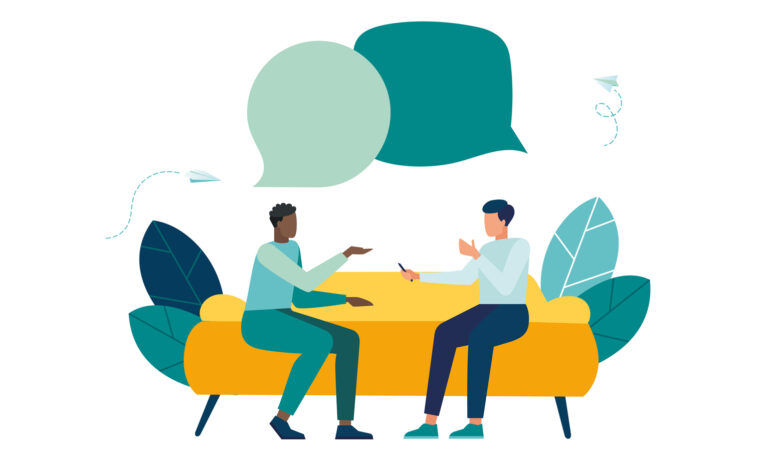
With the prevalence of eating disorders on the rise, it can be difficult to know where to turn for help. Thankfully, with this blog post I will share some tips on how you can overcome an eating disorder and live a healthier life!
Don’t let your diagnosis define you.
First, don’t let your diagnosis define you. This can be hard because it certainly feels like it has. I remember feeling like a victim and a failure for having an eating disorder. I wanted desperately to be normal and healthy again but felt like nothing would ever be the same again because of my disorder.
This is not true! Recovery is possible and you are stronger than any eating disorder could ever hope to make you believe! You are not alone in this journey—you have me by your side!
Practice compassionate self-talk.
It’s easy to develop a destructive and negative pattern of self-talk when you’re dealing with an eating disorder. You might say things like “I’m such a loser,” or “I’ll never be happy.” Your thoughts have the power to amplify any existing unpleasant feelings in your life. However, if you engage in compassionate self-talk, your body and mind will be more postively activated.
Start by practicing compassionate communication when talking to yourself! When we treat ourselves with respect, we feel better about ourselves and our lives overall. We may not always love all of the decisions we’ve made, but we should still be kind when reflecting on them—and that means being gentle enough with yourself so that you don’t beat yourself up unnecessarily for past mistakes or berate yourself for not being perfect at everything all the time (which is impossible anyway!). Being kind towards ourselves means allowing ourselves room for growth and learning from our mistakes instead of beating ourselves up over them; it also allows us to feel safe enough within our own minds so that we can share those feelings openly with others outside of our heads as well!
It’s crucial to practise compassionate self-talk internally by promoting good thoughts whenever possible, in addition to practicing it externally. If someone makes a negative comment about your appearance today, for instance, remind yourself that they are also beautiful on the inside, no matter how they may appear to you right now.
Stay away from your “trigger foods” at all costs.
There are certain foods that, when you eat them, make you want to eat more. They trigger a negative reaction in your body and mind, like stress or anxiety. You can have a variety of these foods: chocolate, ice cream, cookies, pizza and so on.
These trigger foods should be avoided at all costs while you are beginning your recovery from an eating disorder since they could lead to a relapse and a return to your old habits. The issue is that trigger foods are what we most frequently want for when we’re worried or anxious, and a lot of people find themselves day after day thinking about them obsessively without being able to resist temptation.
This is where having support around may help, as it will stop you from giving up just because times are difficult and instead keep you focused on reaching your goals. No one would ever accomplish anything meaningful if there were no rewards, but luckily there are always rewards for those who put in effort – whether it be losing weight faster than expected or feeling proud of yourself for sticking with something until completion!
Let your loved ones in on the struggle.
No one can understand what you are going through better than those who love you, but it is important to make sure they know how much they mean to you. The support and help they offer is invaluable. When times are tough, they are there for you, and having them around keeps you grounded and focused. They also understand how proud you should feel for taking on such a big challenge, at times when it may have seemed overwhelming.

Once someone knows about your struggles with an eating disorder, they will do whatever they can to help encourage positive behavior changes from themselves as well as from others around them who might not be supportive of your recovery process (like roommates). It’s also good for them to learn about these behaviors so that if something does happen again in the future (which isn’t likely), then everyone will be more prepared with concrete solutions rather than panicking around trying different things without knowing whether each one really worked–or even worse yet: doing nothing at all!
Recognize that there is not a cure for this illness, only management skills to get you through difficult times.
Are you feeling less confident in finding a cure for your eating disorder? Be at ease. The key to managing your eating disorder is to understand that there is no known treatment for it; instead, there are coping mechanisms you can use. You could believe that because there is no cure, you will always be caught in this cycle, but this is simply not the case. With proper maintenance and care of yourself and the help from others who know what they are doing—your doctor or therapist—you can live with an eating disorder for years!
However! It’s also important to stay on top of your eating disorder by recognizing the signs of relapse:
- Becoming fixated with food again (for example keeping track of every calorie consumed)
- Using any form of purging after meals (vomiting being most common)
Gain perspective on the disease by reading about it and talking with others who have been through it.
Having a clear understanding of what an eating problem looks like can be useful if you’re unsure whether you have one. You can learn that eating disorders are a very real issue with a wide range of signs by reading about them. Talking with people who have gone through an eating disorder is also helpful because they can explain how they overcame the illness and share their tips for recovery.
Talking to people who have gone through similar experiences to yours will offer you hope since they can relate to you on a personal level. They might also offer better ways of dealing with feelings of shame or guilt than what your doctor suggests (because all doctors are human beings, after all).
Finding your tribe can help you understand why this happened in your life, which is the final—and most crucial—point. It might even inspire you to forgive yourself for first getting sick!
Identify why you are putting yourself through this pain – what motivates you?
In order to overcome an eating disorder, you must understand the root cause of your illness. Why are you putting yourself through this pain? What motivates you? You may want to ask yourself these questions:
- What is driving me to do this?
- What am I trying to achieve with my eating disorder (other than just losing weight)?
- What benefits does this behavior bring me at first and later on when my illness progresses and I’ve become more entrenched in it?
- How much longer will I be able to tolerate these drawbacks before I get fed up with them enough to go seek help or treatment?
- What other ways could I achieve the same goal (like feeling good about myself) without resorting to self-harmful behaviors like starving myself or throwing up what little food I do eat while also drinking copious amounts of water so as not have any noticeable bloating around my body that would give away my secret shame — that despite all outward appearances, on the inside there isn’t much left…
Get organized
Set aside time every day to eat regularly, get enough sleep and exercise moderately and consistently, depending on the commitment level your doctor has set for you.
It’s likely that the mere thought of these things can feel overpowering if you are battling an eating disorder. If this applies to you, take a moment to take a breath and start off small. Make sure to do one tasks at a time; whether it’s talking to a therapist or just getting dressed in the morning, just concentrate on the current task until it becomes a regular part of your routine
Make sure you can identify when you are slipping into old habits.
Make sure you can identify when you are slipping into old habits of starvation or binging (if it’s the latter). It’s important to understand that if there is a problem, you need to tell someone right away so they can help you through the next stages of recovery and professional therapy — this is NOT something that should be dealt with alone and without support!

You can do this by keeping a journal for yourself. This will allow you to see patterns or triggers for your binges, as well as how long it took for those feelings to go away after eating. You might also want to keep an eye on what foods make up your daily diet/caloric intake, since many people with eating disorders find themselves consuming very few calories but still report feeling starved all day long. If these things sound like something that could apply to you, then it’s time for action – try talking about these issues with trusted friends or family members first before moving forward with any type of treatment plan.
The road to recovery is not an easy one, but it is worth it. If you or someone you know needs help with an eating disorder, you should follow these tips to improve your eating habits.
RUCHI RATHOR Founder & CEO
Payomatix Technologies Pvt. Ltd.
FOUNDER AND INVESTOR | PAYMENTS PROCESSING EXPERT | MERCHANT ACCOUNT SOLUTIONS | WHITE LABELLED PAYMENT GATEWAY | Dreamer, Creator, Achiever, Constantly Evolving
Website Ruchi https://ruchirathor.com
Website Healing Heart https://thehealingheart.me/wp-admin
Instagram https://www.instagram.com/compasionaterr/
LinkedIn https://www.linkedin.com/in/ruchirathor12/
Facebook https://www.facebook.com/ruchi.rathor.magnificient
Tumblr https://www.tumblr.com/blog/ruchirathor-thehealingheart
Medium https://medium.com/@ruchirathor_23436
Twitter https://twitter.com/ruchi_rathor









